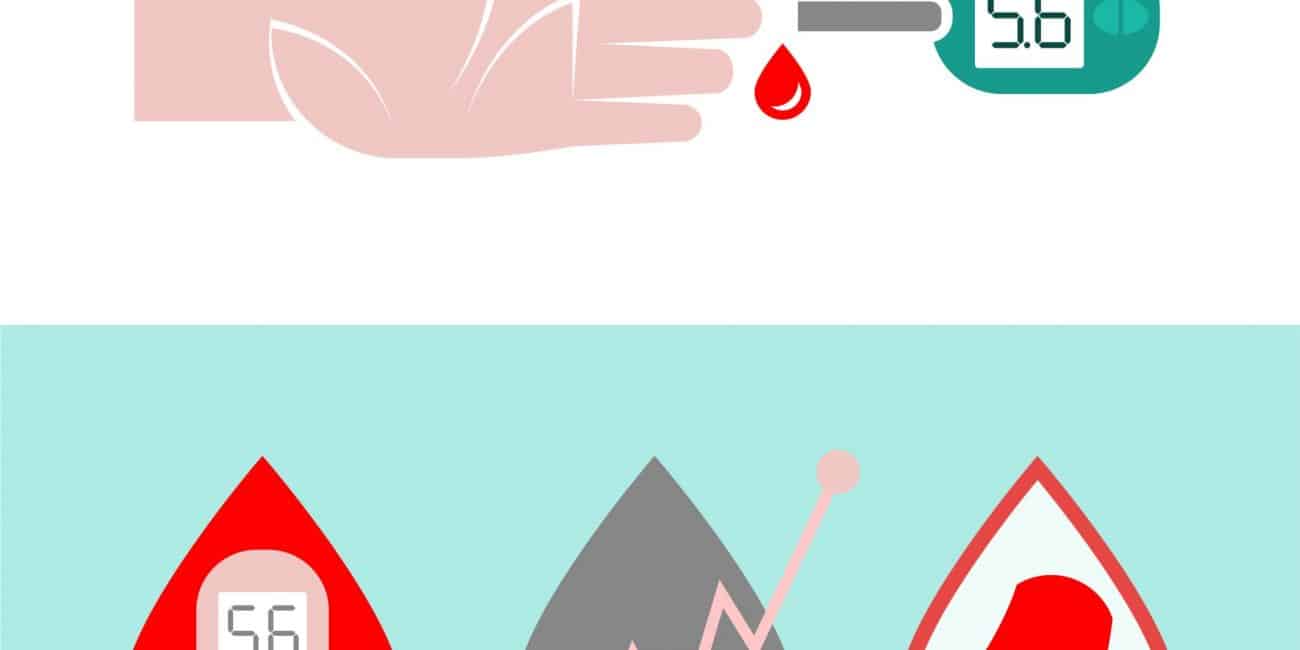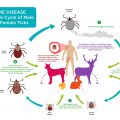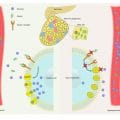Blood sugar imbalances | regain your luscious locks

Manage your blood sugar imbalances and regain your luscious locks.
Blood sugar imbalances can affect your health in a variety of ways, including hair loss problems. If you want to regain your luscious locks, you have to rebalance your blood sugar.
When your blood sugar is out of balance, levels in the blood can either be too high hyperglycaemia. But they can also be too low, hypoglycaemia.
Dr Izabella Wentz is the Author of the book Hashimoto’s Thyroiditis: Lifestyle Interventions for Finding and Treating the Root Cause. She wrote the following information in her article about Hashimoto’s and Getting your Hair back.
“Balance your blood sugar! Fluctuations in blood sugar levels have an adverse impact on your body and your overall health. A diet that is lacking healthy fats and enough quality proteins combined with eating too many carbohydrates wreak havoc on your health and hair! When your blood sugar levels swing, it encourages the conversion of T4 to Reverse T3. This is associated with increased shedding. “
When blood sugar is too high, you could find yourself diagnosed as diabetic (hyperglycaemic) or pre-diabetic. When blood sugar is too low (hypoglycaemic), you could struggle with low energy, moodiness and hunger. But it doesn’t stop there.
Hair Loss, blood sugar imbalances and Insulin resistance
Insulin resistance can be an early indicator of blood sugar imbalances. Also, it is more frequently linked to alopecia in medical studies. Those suffering from male and female pattern balding are often found also to be insulin resistant.
Research continues to prove that processed food contributes to hair loss. Processed foods have a high glycaemic load. Food with a high glycaemic load tends to raise your blood sugar levels after eating. There is other research that indicates that male baldness has a correlation to insulin resistance. They even state that insulin resistance can be diagnosed visually by baldness.
Insulin resistance
The term “insulin resistance” is being discussed more and more when it comes to health. It is a medical condition in which the cells of the body no longer respond to insulin, as they should.
Your body uses insulin to keep your blood sugar levels in the normal range. When you eat sugars or carbohydrates, they turn into glucose within your body. In response, your body releases the insulin needed to infuse glucose into every cell of your body.
When your body becomes resistant to insulin (insulin resistance), your cells aren’t able to receive the glucose they need for energy. Instead of being distributed to your cells, insulin remains in your blood, at very high levels. Your body naturally releases more insulin in response to elevated blood sugar levels, and a cycle begins. Undetected, this cycle leads to type II diabetes.
Our hair has difficulties with continuing changes in the blood sugar, and it can’t cope with the continuous highs and lows, which may interrupt the growth cycle. So, in that respect, it is likely that insulin resistance may cause hair loss because of the unstable blood sugar swings. Hair is one of the first noticeable areas on the body that show the body is suffering from something.
Primitive cultures didn’t have access to foods that are causing these highs and lows. Or like Inuit’s who’s diet consists of fats and fish mostly, they wouldn’t undergo such swings either.
My Personal Struggle with Low Blood Sugar and blood sugar imbalances
A few years back, I began to feel faint often. This feeling would disappear however after I ate. Just one coffee or glass of wine would make me feel really worn, cold and worn out, after the initial rush of energetic, warmth.
At the time, one coffee could leave me in a bad mood for the whole day, most likely, because my adrenals glands were too weak to handle coffee at that time. Low blood sugar can raise your pulse to anxiety levels. Altogether I felt cold, tired, drowsy, confused, and exhausted.
I struggled to find a good doctor. In my years of research, I met few, I am not saying there are no good Dr’s in the world, of course, there are, but in my opinion, good Doctors are hard to find, and I have often been disappointed.
I zeroed in on my condition without the help of a physician, and I discovered its medical term was Hypoglycaemia. (or low blood sugar) Over the years, I had done so much research, that I recognised the combination of a low pulse, low BP and adrenal fatigue (which are often related to Hypoglycaemia). I understood that this one of the conditions I was suffering with and that my diet was really critical to keeping it at bay.
How to define low blood sugar imbalances or hypoglycaemia?
When blood glucose levels fall below 70 mg/dl, it is considered hypoglycaemia. This is a condition that can cause a person to lose consciousness or even lapse into a coma. Like all medical conditions, it can be due to a variety of factors.
It is important to know that stress and anxiety can mimic the symptoms of hypoglycaemia. They can cause excess production of catecholamine. This produces symptoms that are like hypoglycaemia.
Blood Sugar Facts; Signs of high/low blood sugar can include:
- Fatigue and low energy
- Food cravings, especially sugar/carbs
- Excessive thirst
- Weight fluctuations/weight loss;
- Increased urination
- Mood swings, nervousness and/or jitters
- Blurred or worsening vision
- Slow-healing skin wounds
- Dry skin
- Cuts and bruises
- Frequent infections
- Heavy breathing and difficulty exercising
- Tension headaches
Pre-Diabetes
When your blood sugar is elevated for an extended period, you can become pre-diabetic. If it continues to be high in the pre-diabetic phase, it can become full-blown diabetes.
Diabetes
Diabetes is a chronic disease that today affects approximately 1 in 3 adults in the United States. It is also on the rise globally as well.
Blood sugar imbalances and fluctuations
If your blood sugar fluctuates, it is important to review your diet. Abnormal blood sugar links to a poor diet. Diets that are high in sugar and carbohydrates can often lead to diabetes. Refined grains, artificial ingredients and packaged foods fall into this poor food category as well.
Make sure you eat enough foods that keep your blood sugar balanced and never skip meals. Lack of sleep links to the onset of diabetes in some studies. So be sure to get full, regular sleep also.
Other factors related to blood sugar fluctuations are chronic stress, over-exercise (without properly refuelling) and a family history of diabetes and insulin resistance.
How to achieve normal blood sugar
To maintain and achieve normal blood sugar levels it is critical to eat a low-processed, anti-inflammatory diet that includes healthy fats, protein foods and high-fibre foods. Avoid carbs, sweeteners, sugars, kinds of pasta, refined flour and all carbs that provoke swings in blood sugar. Exercise in moderation, manage your stress levels and get enough rest!
CHECKLIST; Is Your Blood Sugar Balanced?
Below are simple indicators of blood sugar problems.
- Low energy levels, Fatigue or chronic fatigue symptoms
- Excessive thirst
- Increased urination and frequent urination at night
- Sugar/carb cravings
- Nervousness, mood swings, or “jitteriness.”
- Worsening or blurred vision
- Slow healing of skin wounds
- Heavy breathing
- Tension headaches
- Weight loss / weight fluctuations
- Skin dryness, frequent cuts and bruises
- Frequent infections and difficulties healing from minor infections
- Trouble exercising
Holistic solutions to regrow hair, clean living and optimal health
If you would like to learn more about hair loss, please check out my hair loss causes page.
Or to discover more information about cleaning living and holistic lifestyle, explore my optimal health page.
Check out the best essential oils to regrow stronger and thicker hair page
Empowering others via my anti-ageing wellness platform and holistic health books
I hope you liked this page about blood sugar imbalances and its relation to thinning hair. If you would like to learn more about my tips and tricks on how to live a toxin-free life or how I saved my hair from falling ensure to check out other pages of this anti-ageing wellness platform.
Or if you want to discover my no BS guides on how to regain your health, hair and life, ensure to check out my holistic anti-ageing wellness books
After a frustrating decade of battling several chronic illnesses, I became disillusioned with the medical system and decided to take my health into my own hands.
Now, through my books and wellness platform, I want to empower people around the world do the same and regain their health, hair, life and beauty!
Let me help you right now!
Receive YOUR Welcome Kit that includes a wide range of topics, from simple and easy healthy brain recipes to clean living, ditching toxic chemicals with loads of practical advice that you can implement immediately
.
References & Resources
Author of the book Hashimoto’s Thyroiditis: Lifestyle Interventions for Finding and Treating the Root Cause Dr. Izabella Wentz wrote the following information in her article Hashimoto’s And Getting Your Hair Back…
https://draxe.com/normal-blood-sugar/
Hypothyroid mom




